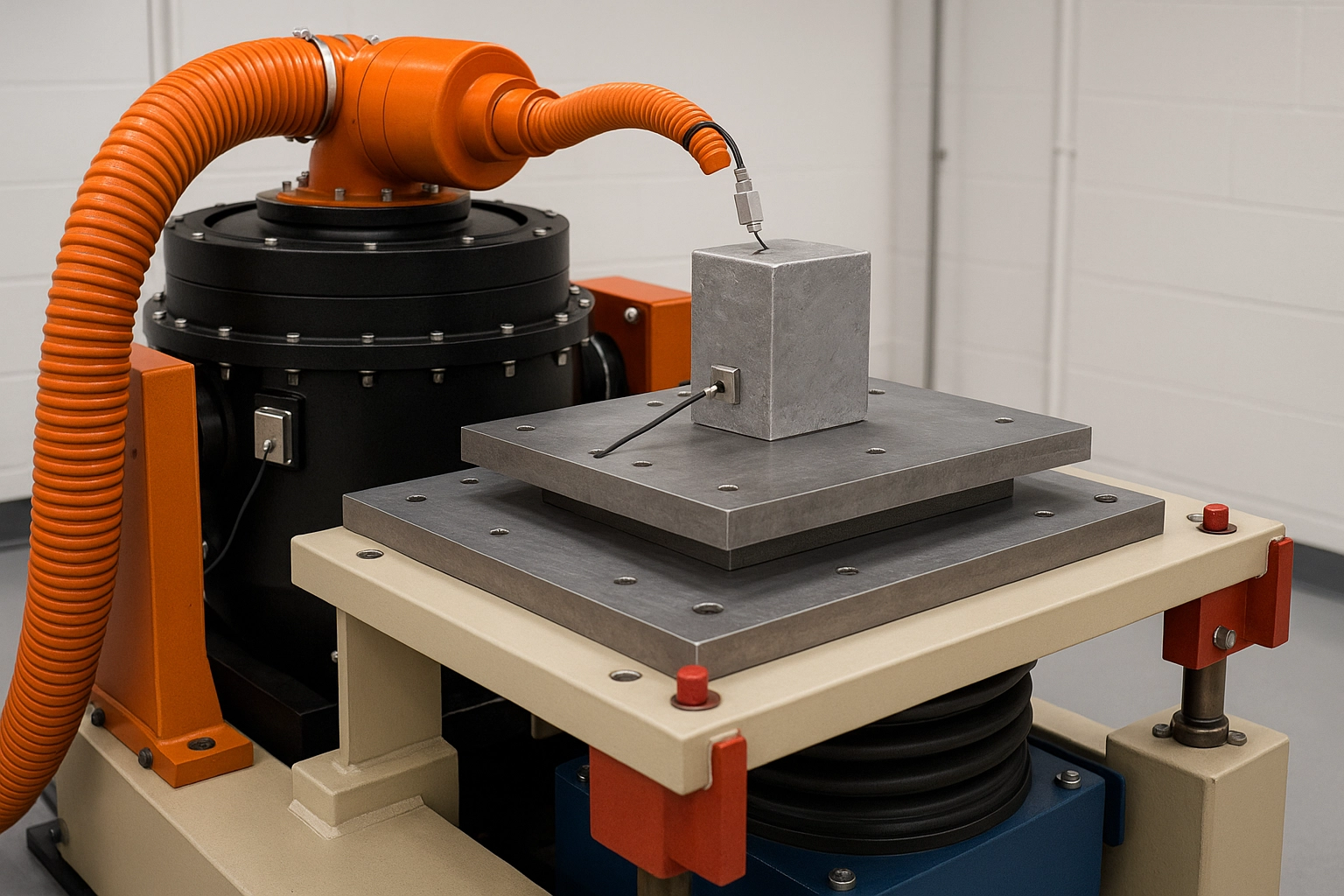DIN EN ISO 21940 Rotor Balancing and Vibration Testing
The DIN EN ISO 21940 standard is a comprehensive framework designed to ensure that rotors, particularly those used in automotive applications, meet stringent balancing and vibration criteria. This service plays a crucial role in the quality assurance process by ensuring that rotating components are free from excessive imbalance or vibration, which can lead to premature wear, increased noise, and reduced efficiency.
In the context of automotive testing, rotor balancing is essential for optimizing vehicle performance and safety. Rotors are critical components of braking systems, and any imbalance can cause uneven heat distribution, leading to hotspots that may compromise brake effectiveness. Vibration testing further ensures that the rotors are robust enough to withstand the dynamic forces encountered during high-speed operation.
The service involves a series of precise measurements and adjustments aimed at achieving optimal balance and minimizing vibration. This process typically includes:
- Initial inspection and measurement of the rotor's dimensions
- Identification of any imbalances or defects through non-destructive testing methods
- Use of specialized balancing equipment to achieve the required static and dynamic balance
- Vibration analysis using advanced instrumentation to ensure compliance with ISO 21940 specifications
- Reporting and documentation of all test results, including any necessary adjustments or repairs
The testing is conducted in a controlled environment that simulates real-world operating conditions. This approach ensures that the rotors are not only balanced but also capable of performing optimally under various driving scenarios.
The DIN EN ISO 21940 standard specifies strict acceptance criteria for rotor balance and vibration. These criteria ensure that the components meet both performance and safety standards, which is critical in automotive applications where reliability and longevity are paramount.
| Parameter | Acceptance Criteria |
|---|---|
| Static Balance | Imbalance shall not exceed 10 grams-millimeters (g-mm) |
| Dynamic Balance | Unbalance shall not exceed 25 g-mm |
| Vibration Levels | No more than 4 mm/s displacement at 63 Hz frequency |
The testing process is highly technical and requires precise instrumentation to ensure accuracy. The equipment used in this service includes:
- Rotational balancers capable of measuring both static and dynamic balance
- Vibration analyzers that can capture frequency response data
- Non-destructive testing tools for identifying potential defects or weaknesses in the rotor material
The results of this service are critical for quality managers, compliance officers, R&D engineers, and procurement teams. By ensuring that rotors meet the stringent requirements of DIN EN ISO 21940, these professionals can be confident that they are selecting components that will perform reliably under demanding conditions.
Applied Standards
| Standard | Description |
|---|---|
| DIN EN ISO 21940:2018-05 | This standard provides a comprehensive approach to rotor balancing and vibration testing, ensuring that rotors meet both performance and safety standards. |
| ASTM E631-18 | American Society for Testing and Materials standard for the measurement of static and dynamic balance of rotating parts. |
| EN 15217:2017 | This European standard specifies requirements for quality management systems in the production, installation, and maintenance of automotive components. |
The application of these standards ensures that the testing process is consistent and replicable. This consistency is critical for maintaining high-quality standards across different manufacturing processes and environments.
Eurolab Advantages
Our laboratory offers a range of advantages when it comes to conducting DIN EN ISO 21940 rotor balancing and vibration testing. Our state-of-the-art facilities provide the necessary precision and accuracy required for this specialized service.
- ISO/IEC 17025 accreditation ensures that our laboratory meets international standards for competence and capability in testing, calibration, and inspection services.
- Expert technical staff with extensive experience in automotive testing ensure that the highest standards are met during each test.
- We offer a rapid turnaround time, providing clients with timely results to support their quality assurance processes.
- The use of cutting-edge technology and equipment guarantees accurate measurements and reliable data.
Our commitment to quality and customer satisfaction is reflected in the consistent performance and reliability of our testing services. By choosing Eurolab, you are partnering with a laboratory that understands the importance of precision and accuracy in automotive testing.
Customer Impact and Satisfaction
- Improved Product Quality: Ensures that only high-quality rotors pass the test, reducing the risk of product failures on the market.
- Enhanced Customer Trust: By adhering to international standards, we build trust with our customers and partners.
- Simplified Compliance: Our services help clients meet regulatory requirements more efficiently and effectively.
- Cost Savings: By identifying potential issues early in the production process, we can prevent costly rework or recalls.
Customer satisfaction is a key priority for us. We strive to provide reliable and accurate testing results that meet or exceed our clients' expectations. Our focus on quality ensures that each rotor tested is not only balanced but also capable of performing optimally under real-world conditions.





